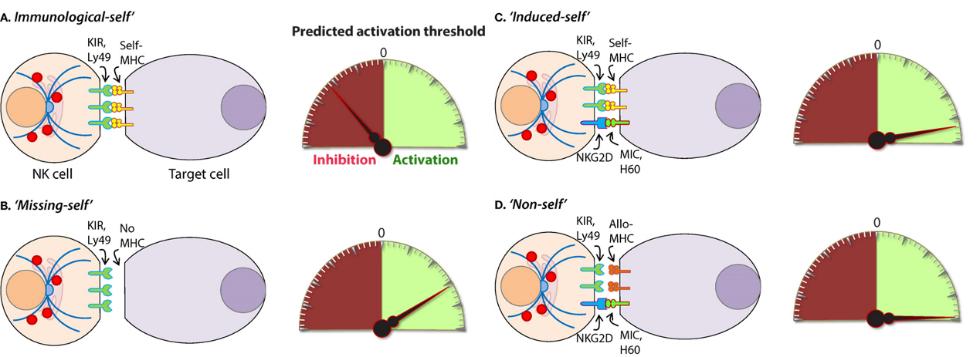Immunomics Services
Immunomics Services for Natural Killer Cells
Natural killer (NK) cells are large granular lymphocytes that have the inherent ability to recognize and kill foreign, infected, and malignant cells and regulate the immune system by rapidly producing numerous cytokines and chemokines. CD Genomics offers a wide range of immunomics services to help clients explore the process of NK cell development and maturation and their potential applications in the clinic.
Introduction to NK Cells
NK cells make up approximately 5-15% of circulating lymphocytes in healthy adults and therefore represent one of the three major human lymphocyte lineages, including B cells and T cells. There are many functional and phenotypic similarities between NK cells and T cells, particularly CD8+ T cells. NK cells respond rapidly to intracellular pathogens, infected cells, and tumor formation.
Functions of NK Cells
NK cells are produced and respond to inflammatory stimuli, and they are best known for their role in antiviral immunity, tumor immune surveillance, various autoimmune diseases, and anti-inflammatory programs. Natural killer cells have a unique ability to recognize infected cells without the direct involvement of the MHC-I complex. Thus, intracellular pathogens that evade CD8+ T cells by interfering with MHC-I surface expression remain vulnerable to NK cell-mediated immunity.
 Fig.1 Mechanisms of NK cell recognition of target
cells. (Abel, A. M., et al., 2018)
Fig.1 Mechanisms of NK cell recognition of target
cells. (Abel, A. M., et al., 2018)
Immunomics Studies for NK Cells
The Omics study provides a panoramic view of NK cells, not only from development to exhaustion but also the multiple responses to effector function in different environments. Different biotechnologies are used to analyze NK cells at different levels.
 Fig.2 Multi-omics analysis of NK cells. (Zhou, Y., et
al., 2017)
Fig.2 Multi-omics analysis of NK cells. (Zhou, Y., et
al., 2017)
- Understanding NK Cells From Multiple Perspectives
In studies of NK cell characterization, comparative analysis of the transcriptome and proteome of different cell types, such as NK cell subpopulations, NK cells, and ILCs, is commonly performed by microarray, RNA-seq, and CyTOF.
- The Origin of NK Cells
To study the phylogeny of innate immunity as a protective mechanism and the origin and development of NK cells, NGS technology has been used to map the genomes of humans, mice, and other species to help decipher the phylogeny of NK cells based on a characteristic gene population containing multiple aspects of NK cells.
- Potential Applications of NK Cells
In disease-related NK cell research, multi-omics encompassing the transcriptome, proteome, and even the metabolome is an effective research tool. Paired single-cell analysis by combined scRNA-seq, RNA-seq, and CyTOF has been used to characterize the immune environment in cancer tissues and has shown that the number of NK cells is severely reduced and impaired during the development of cancer. These studies have facilitated the development of NK cell-based immunotherapy for tumors.
Our Services
Natural killer cells are more complex than originally thought. Advances in omics have made it a new and powerful tool to reinvigorate the study of NK cells. CD Genomics offers several types of immunomics services, providing clients with a wealth of information to help further enhance their understanding of NK cells and accelerate the development of NK cell-mediated immunotherapies against a wide range of diseases.
Why Choose Us
Due to technical limitations, research on NK cells lagged behind research on T and B cells for a long time. CD Genomics has been specializing in immunomics research and the omics study of immune cells for many years. We offer our clients a reliable service for the immunomics analysis of NK cells. Please contact us for more information.
References
- Abel, A. M., Yang, C., Thakar, M. S., & Malarkannan, S. (2018). Natural killer cells: development, maturation, and clinical utilization. Frontiers in immunology, 9, 1869.
- Zhou, Y., Xu, X., Tian, Z., & Wei, H. (2017). "Multi-Omics" analyses of the development and function of natural killer cells. Frontiers in Immunology, 8, 1095.
